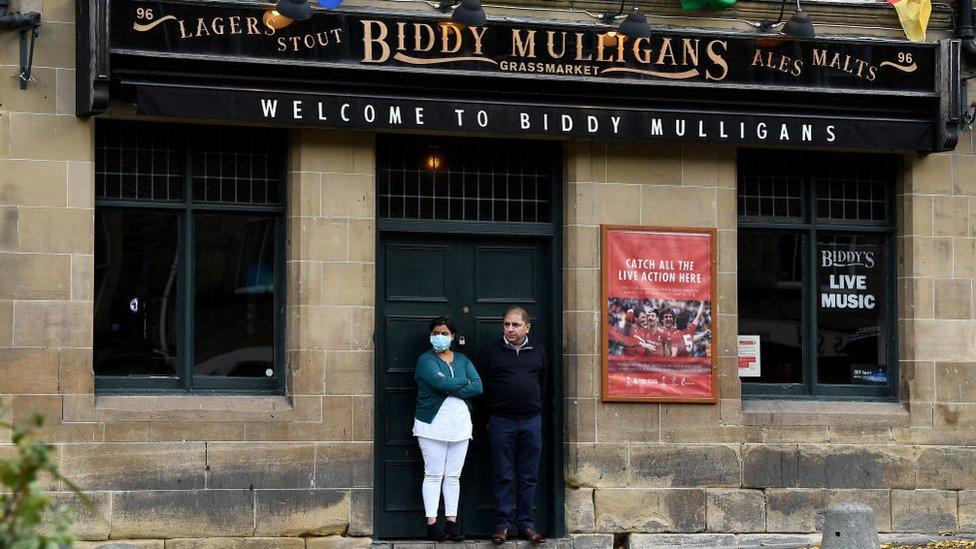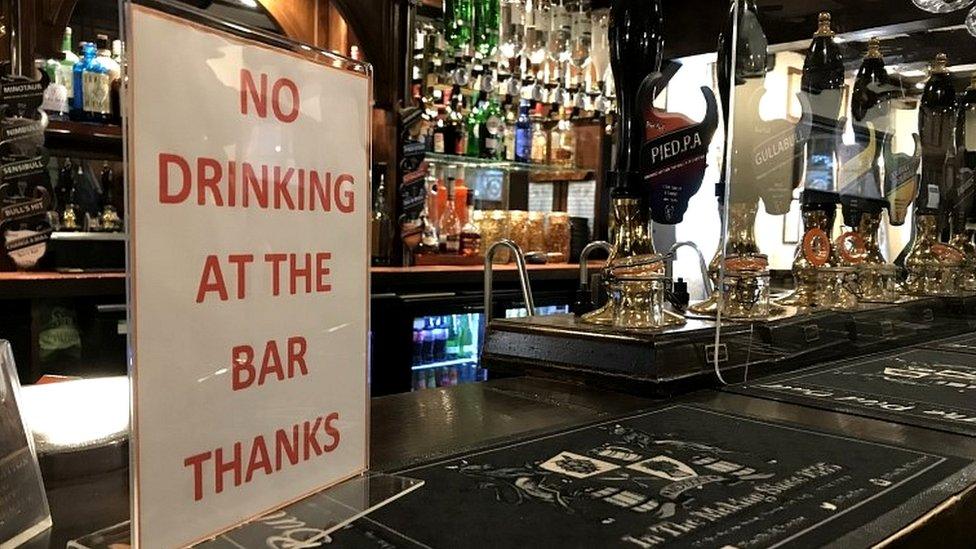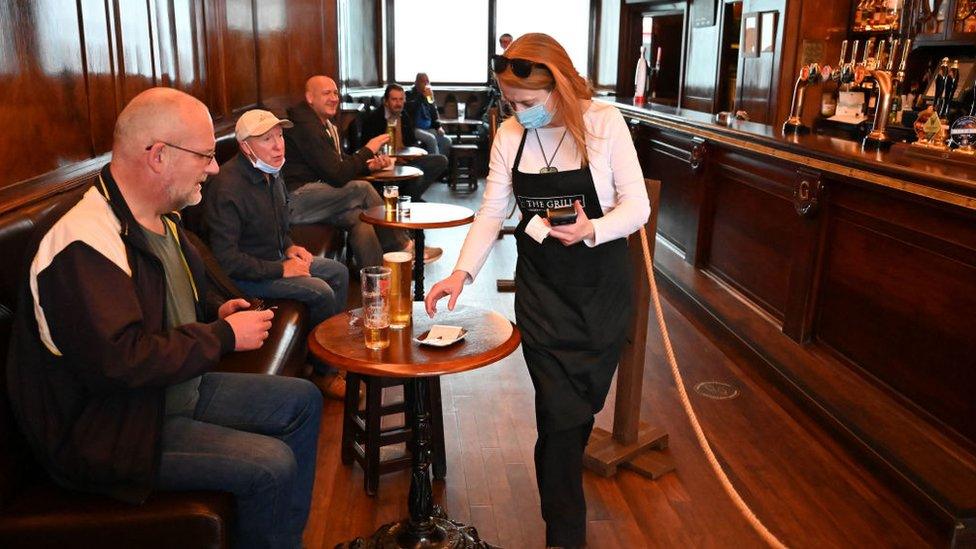Covid tier system: Scottish hospitality sector facing 'existential threat'
- Published

Business leaders have warned the Scottish government's new system of Covid restrictions poses an "existential threat" to the hospitality sector.
The five-tier framework will take effect across the country from Monday.
First Minister Nicola Sturgeon has said the new system avoids the need for a "one size fits all" approach.
The government has now responded to industry representatives' demands "to see the evidence driving the decision".
It follows a group of five hospitality industry bodies last week launching a legal challenge against the Covid restrictions.
The trade bodies warned they would petition for a judicial review if the current curbs were not withdrawn.
The have now said they will "digest, consult and scrutinise the contents" of the government's response.
'No real grounds for optimism'
Group spokesman Paul Waterson said: "We reiterate that we all understand and entirely support the goal of suppressing the virus.
"But our sector is in crisis and the announcements and debate in parliament yesterday gives us no real grounds for optimism in the future."

The current restrictions in Scotland have hit the hospitality industry
Tim Allan, president of the Scottish Chambers of Commerce, had earlier warned of the threat to the industry's survival.
He said: "Some businesses have thrived in Covid and continue to trade effectively but a very large number, predominately in retail, hospitality and leisure are facing an existential threat."
Mr Allan also told the BBC's Good Morning Scotland that, for ministers, reducing social interactions in households was a "lever they can't pull".
He added: "The lever they are choosing to pull is the lever of hospitality.
"So you might be able now to have alcohol indoors with your meal from 8pm not 6pm.
"Well where is the evidence that that two-hour difference between your starter and your main course is seriously affecting the cross infection of people through the vector of hospitality?"
Mr Allan said if the government published the evidence, they would "carry people with them" but, if they fail to do so, compliance and consent will become an issue.
He continued: "We keep asking for the evidence - the empirical, clinical evidence - which shows that that two-hour difference or half-hour difference in serving times is actually making a difference.
"That's where business is struggling the most, the clear lack of any evidence which dictates or indicates what is actually happening in a hospitality environment and in the shop environment."
'No difference'
Following the government's response to the industry group's threat of legal action, group spokesman Paul Waterson said ministers had previously given "lip service" to their concerns.
He said: "Representatives of the group certainly do not consider these recently increased engagement opportunities as following proper consultation procedures given the short time afforded."
On Tuesday Nicola Sturgeon announced pubs and restaurants in many areas of Scotland would be able to serve alcohol indoors again from next week.
The first minister said the move would allow licensed premises in level two of the country's new five-tier system to serve alcohol with a meal until 20:00.
In level three areas - likely to be much of the central belt - they can reopen until 18:00 but cannot serve alcohol.
The new rules will start on Monday.
The level that each of the 32 council areas in Scotland will fall under is expected to be confirmed on Thursday.
Lanarkshire concerns
The new system will add two levels to the three-tier system currently in use in England, adding a "level zero" at the bottom - where life can return almost to normal - and strict measures similar to a full lockdown in level four.
It is expected that most of the central belt - which is currently under tighter restrictions than the rest of the country - will be placed in level three.
But the exceptions could be North and South Lanarkshire, which could go into the highest level four category due to concerns about high numbers of cases and hospital admissions there.
In level four all pubs and restaurants would be closed, along with non-essential stores, visitor attractions, gyms, libraries and hairdressers.
Bars and restaurants across Scotland's central belt had to close on 9 October as part of a "short, sharp action to arrest a worrying increase in infections", while tight restrictions were placed on those in the rest of the country.




- Published27 October 2020

- Published22 October 2020
